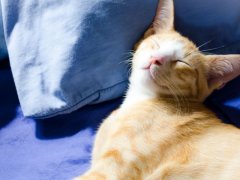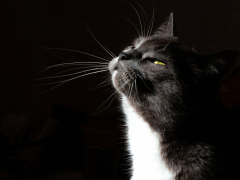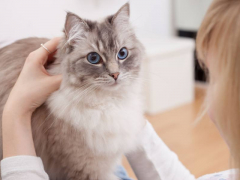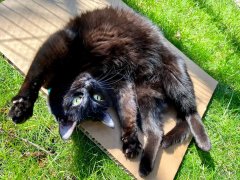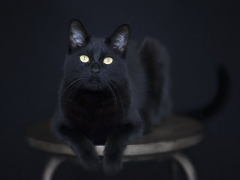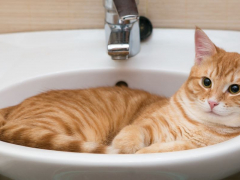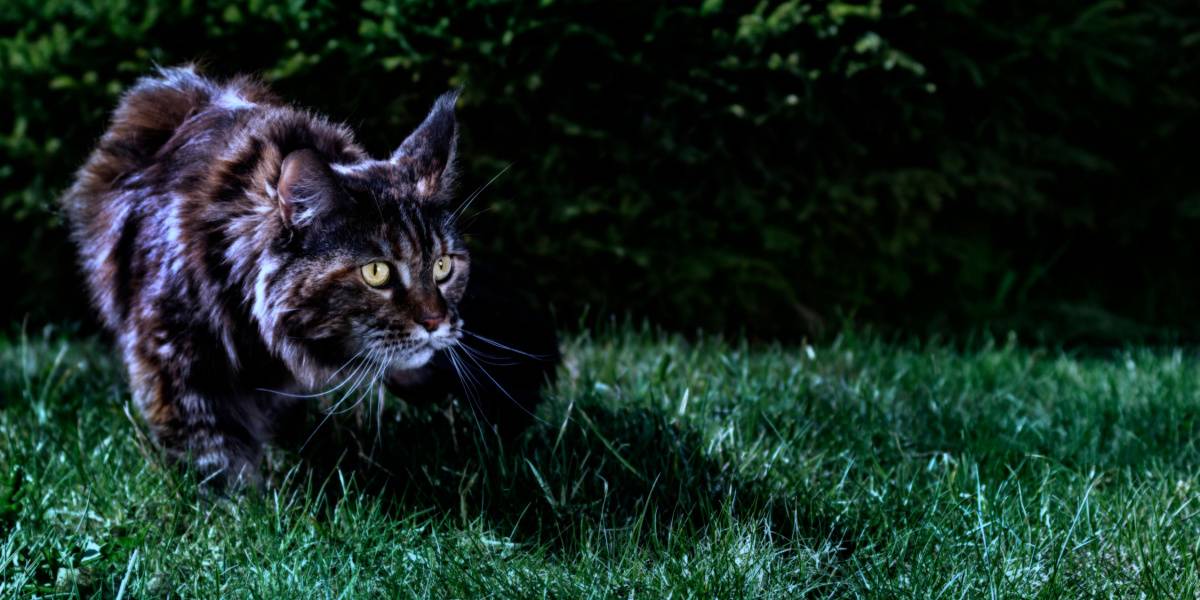
Are your cat’s sleeping habits keeping you up all hours? Or are your kitten’s nighttime antics giving you fatigue?
Cats are most active at dawn and dusk, which is when their prey is most active. Night-time antics can be caused by strong predatory drive, not enough daytime activity, hunger, owner reinforcement, and certain medical problems. Ensure plenty of active play during the day, provide food before bed, and rule out pain, anxiety, or illness if your cat is very active at night.Key Takeaways
Cats are known for their love of sleep, often sleeping around 18 hours out of a 24-hour period. But it can feel like their night activity, with random cat zoomies, jumping on and off furniture, play-fighting, and more, doesn’t quite live up to the expectation of a pet known for their propensity to nap.
Cats’ sleeping schedules can vary a lot, and how much sleep an individual cat needs depends on their age, breed, and temperament, as well as genetic factors. Increased night activity can be due to cats’ natural instincts to hunt, a build up of energy, a reinforced schedule, or due to a medical problem. Read on to find out more about nighttime zoomies and how you can get more peace at night.
Also Read: 11 Tips To Train Your Cat To Sleep All Night
Cat Sleep Rhythms
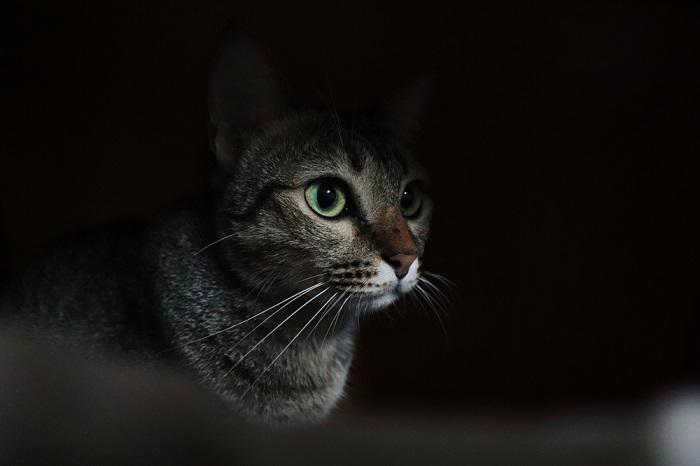
It’s normal for cats to be awake in the evening hours, but too much activity might be disruptive to the household.
Cats are crepuscular, which means they are most active at dawn and dusk. This normal rhythm is based on their instinct to hunt: their usual prey is small rodents and birds, often active in times of lower light levels.
Most adult cats are therefore active at these times, and sleep during the daytime—hence the rise of the term “cat naps.” This propensity to be alert in the early mornings and evenings, however, shouldn’t prohibit cats from having a nice deep sleep during the night.
Also Read: Can Cats Sleepwalk?
Why Do Some Cats Have So Much Energy at Night?
There are a few reasons why your cat might be keeping you up with their overnight antics. Let’s explore the most commom:
1. Hunting Instincts
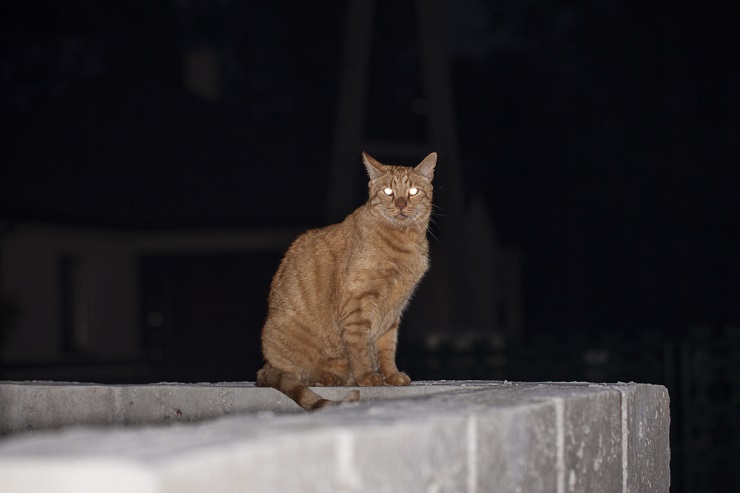
Nighttime is a great time for hunting; cats that go outdoors might be more hardwired to hunt than other.
Felines often have strong survival instincts, and this includes their hunting prowess. Some cats are more predatory than others, spending more time outside and alert and less time snoozing in a comfy lap. Those cats that began life as strays, or have lived a mostly outdoor and self-sufficient life, often have particularly honed hunting instincts.
Cats with strong predatory drives might be more active at night, searching for prey that are most active at these times. The favored prey of cats varies, but some nocturnal small mammals might appeal to your cat, which can lead to a habit of being awake and active at night.
What Can You Do?
Try satisfying your cat’s predatory drive with lots of active play. Adding in a play session before bed with toys designed to be chased, pounced on, and caught might fulfill your cat’s innate need to prowl at night.
Also Read: How Do Cats Hunt?
2. Energy Levels
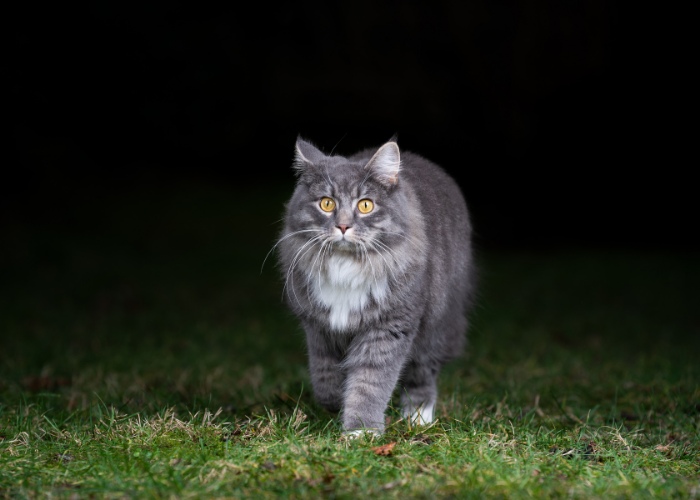
Some cats might feel an instinctive burst of energy during evening hours.
Some cats, including most kittens, are naturally exuberant. Cats, especially younger cats, are active and physical creatures, designed to spend time exploring, patrolling territory, and hunting. In the wild, cats use short bursts of high-energy activity to hunt and catch prey and then recover by sleeping before they are ready to hunt again.
This might be why cats that live less-active lives than their feral counterparts indulge in the “zoomies” (otherwise known as frenetic random activity periods), which are the consequence of pent-up energy giving rise to short bursts of manic zooms around the house and environment.
Cats are often thought of as independent, low-maintenance pets, but if they spend all day snoozing on the bed, they might have some energy to burn at night.
What Can You Do?
Remember that cats, especially young cats, need plenty of physical and mental stimulation. Cats do need to sleep a lot, but make sure there are periods of activity built into the day to tire them out a bit. Consider adding a new cat toy to the home every so often, or try a puzzle feeder or treat ball for some mental stimulation.
Keeping your cat occupied and active in the daytime is good for their physical health and mental well-being, and might buy you a bit more sleep at night.
Also Read: Should My Cat Sleep With Me At Night?
3. Schedule and Reinforcement
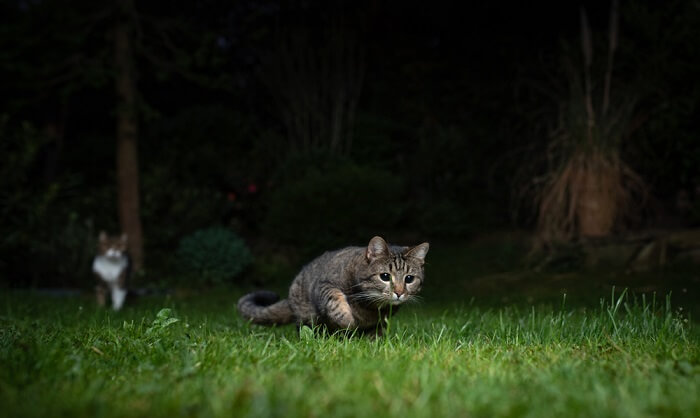
Cats that spend the day snoozing while you’re away at work are more likely to have a burst of energy at night.
Pet owners might accidentally be reinforcing their cats’ nighttime activity. Our busy lives mean that cats are often left to their own devices in the daytime, which usually leads to plenty of cat naps. We then return home, ready to interact and play with our delightful feline companion. This can lead to your cat’s energy levels peaking in the late evening and night-time, refreshed from their day of rest and excited by your return to the house.
Feeding schedules can also play a role in night-time antics. If your cat has a large morning meal, they might become hungry overnight, and wake to find food in the early hours. Some cats are grazers, preferring to eat multiple small meals over a 24-hour period.
Pet owners can also reinforcing this frustrating cat behavior in other ways without knowing it. If your cat regularly wakes you in the night, you might have reached for survival strategies, such as letting them jump onto your bed and having a cuddle, or giving them a meal or some treats to quiet them down. It’s so tempting to do whatever you need to do to get some more shut-eye, but it rewards your cat for waking you and increases the likelihood that they will repeat the behavior.
What Can You Do?
Try to be consistent with your approach to night activity, and avoid reacting in a way that might encourage the behavior. Try to ensure your cat has periods of physical activity spread throughout the day, not just in the evenings. Tweaking your cat’s feeding schedule so they have a full stomach before bed can be helpful to get a longer period of sleep.
Another option if hunger appears to be the problem is to leave a puzzle feeder out for your cat to use overnight, or hide some treats around a room for them to track down in the small hours.
Also Read: Do Cats Have A Sense Of Time?
4. Medical Causes

Senior cats suffering from dementia might find it hard to sleep and be more active at night.
Waking overnight can be a sign of a health problem, especially if this is a novel behavior for your cat. Various issues can cause a change to the sleep-wake cycle, from something as simple as fleas causing skin irritation and excess licking to painful conditions such as arthritis causing discomfort, irritability, and difficulty sleeping.
Older cats can suffer from cognitive dysfunction, which can alter your cat’s sleeping habits and cause night-time waking, vocalization, and periods of disorientation.
Behavioral concerns can also change your cat’s routine and habits, including their sleep. Stress and anxiety, for example, due to a new pet, loud noises, or changes in the environment, can lead to multiple subtle symptoms.
These might include a change to litter box habits or urine spraying, excessive scratching and vocalization, changes to interactions with owners and other pets, as well as altered sleep patterns.
What Can You Do?
If you’re concerned about your cat, especially if you have an older cat or if you cat has suddenly changed their sleep habits, seek advice from a veterinarian. Some symptoms of medical problems can be very subtle in cats and easily missed without a veterinary checkup.
Also Read: Why Does Your Cat Yowl At Night & How Do You Get Them To Stop?
Cats With Lots of Energy at Night: Final Thoughts
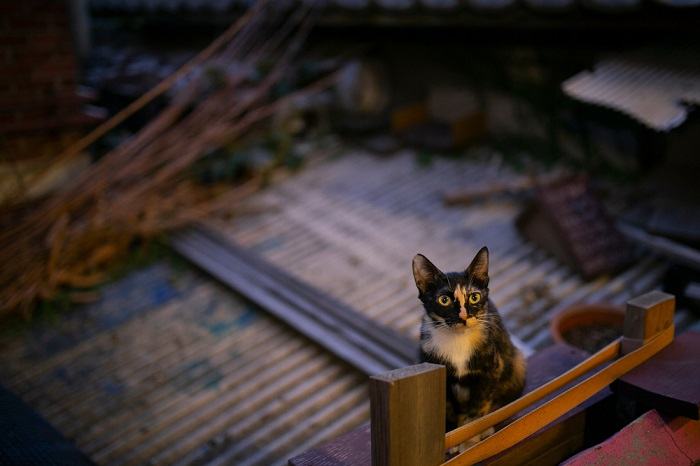
Adding in more activity and play during the day can help your cat sleep more at night.
Cats are often associated with long snoozes in the sun, and they do require a fairly high amount of sleep each day. However, sleep should be interspersed with periods of vigorous activity. Their crepuscular natures and predatory drive can predispose cats to being awake and active at night.
Plenty of active play in the daytime and some changes to feeding times can help your cat (and you!) sleep better overnight, but always remember to get your cat checked over by a veterinarian if you’re concerned, as medical and behavioral issues can also play a role in this common problem.
Also Read: How To Safely Play With A Cat, According To A Cat Behaviorist
Frequently Asked Questions
Why does my cat have a lot of energy at night?
Cats are naturally crepuscular, which means they are active at dawn and dusk. They are also energetic, needing plenty of mental and physical stimulation. Too much daytime sleeping, hunger, predatory drive, and medical problems can all cause high night-time activity.
How do I stop my cat from being hyper at night?
Try adding in lots of active play throughout the day, to burn off excess energy and reduce day sleeping. Feed your cat a meal before bed to reduce overnight hunger, and avoid reinforcing the behavior. A vet checkup is recommended to rule out medical causes of night-time waking.
Do cats have more energy at night?
Cats are naturally crepuscular, most active at dawn and dusk. They need around 18 hours of sleep daily, but if they sleep too much during the day and don’t do enough physical activity, they might be active and ready to hunt at night.
